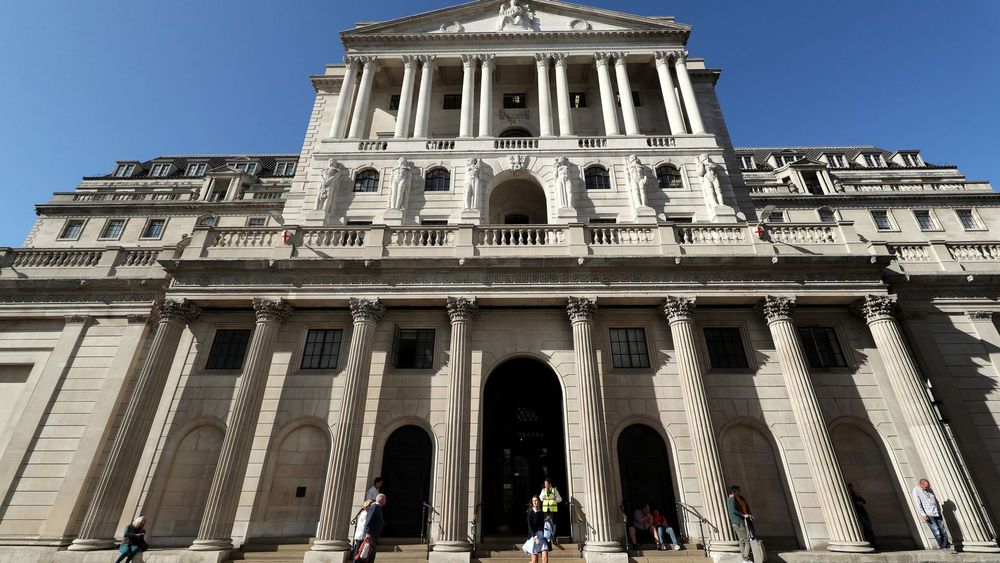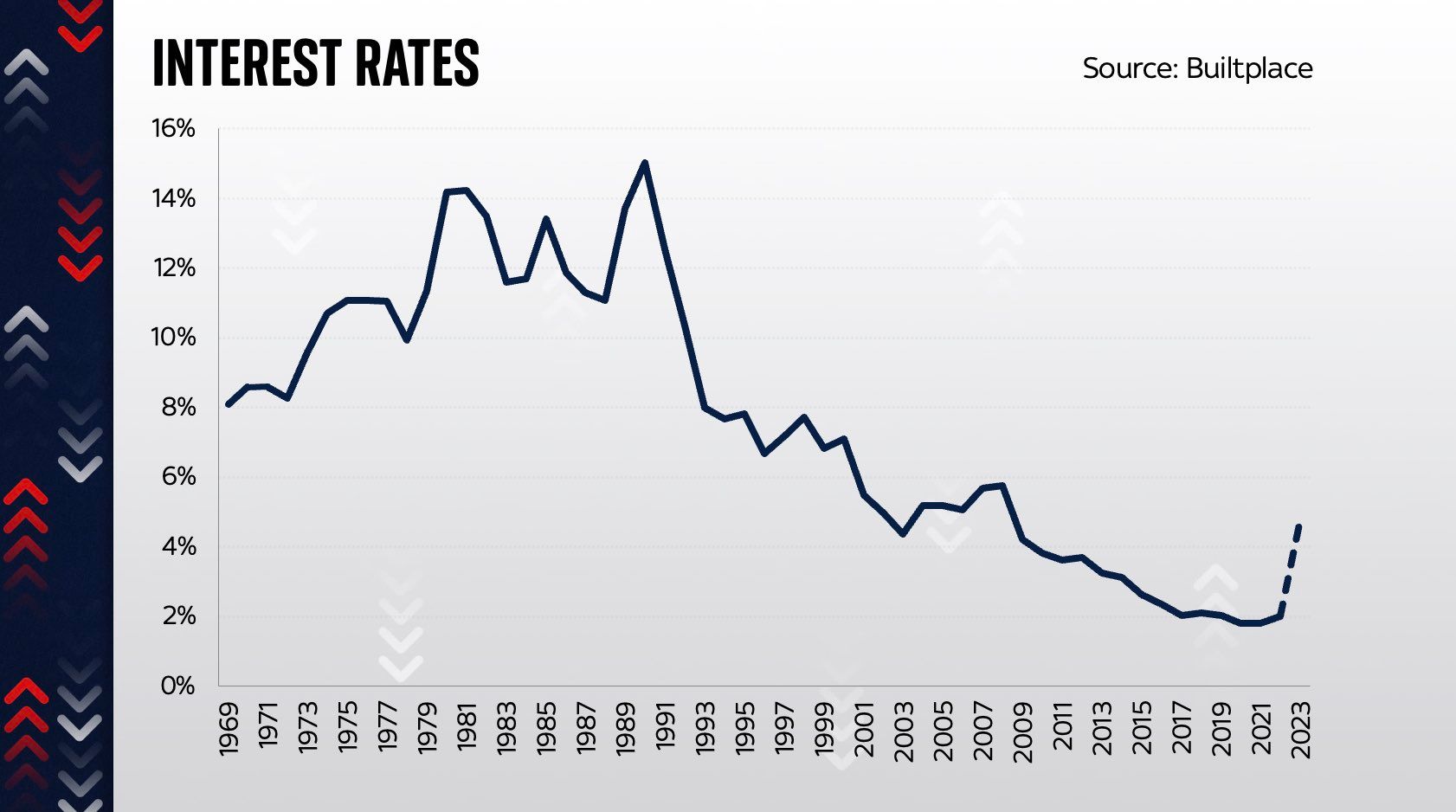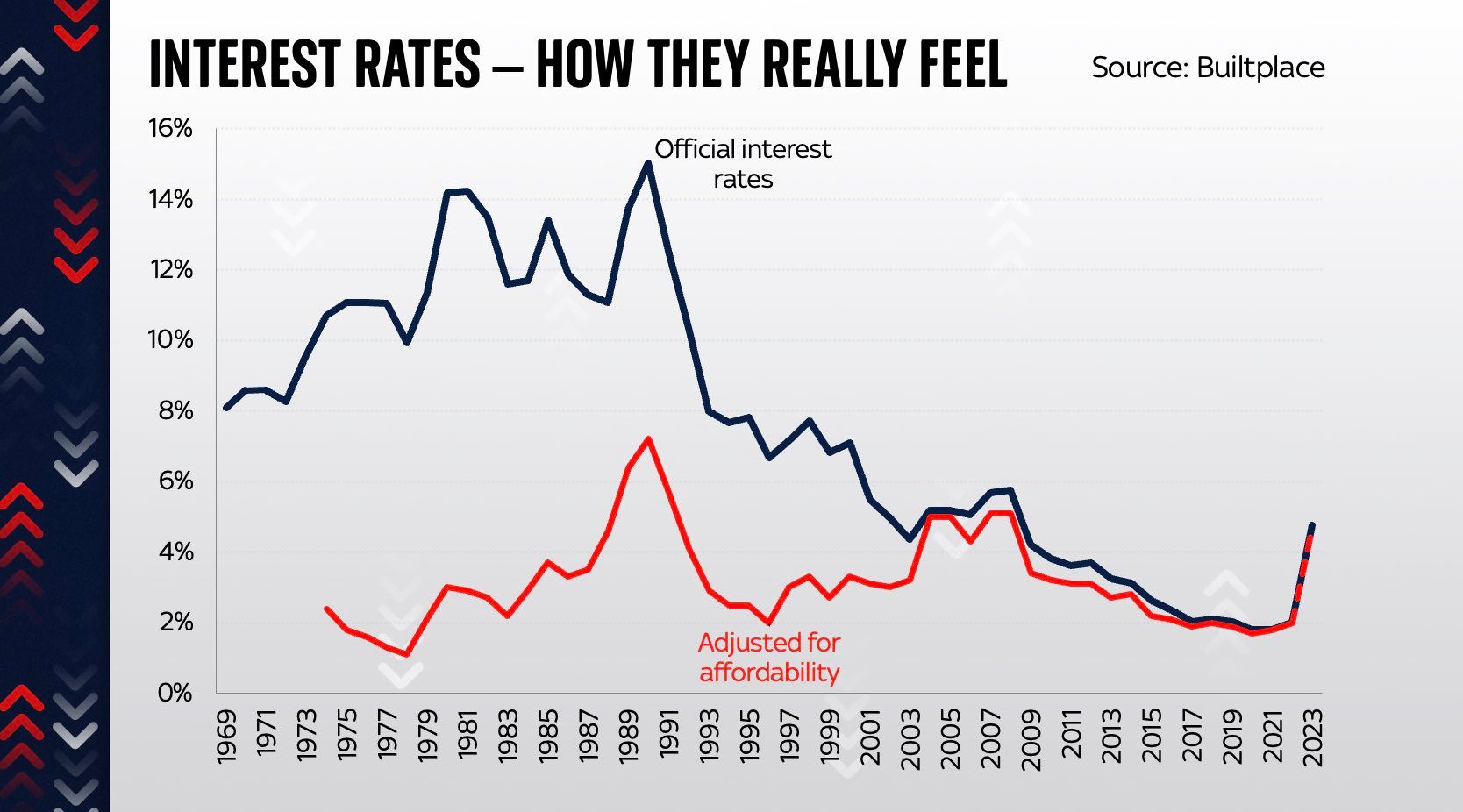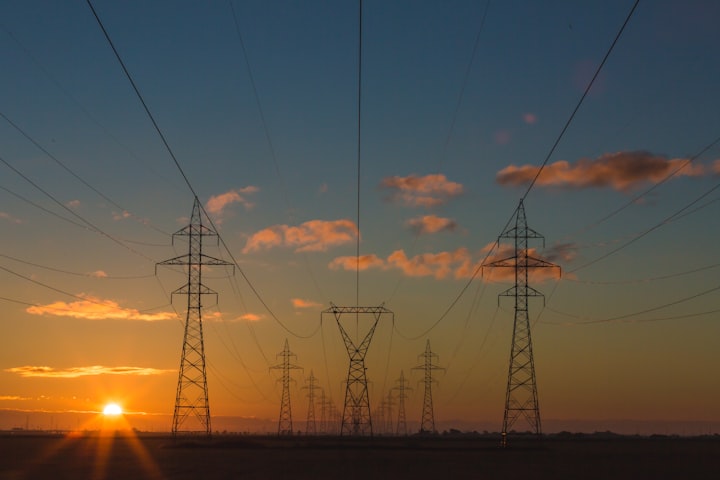Rising interest rates are a bigger deal than you might think

I’m a bit worried people are being WAY too complacent about rising interest rates. They assume that because they’re so low now vs the 1990s, this’ll be a walk in the park. NO.

Let’s start with this chart. Outlook for interest rates has changed enormously in the past few months. Back at the start of the year they weren’t expected to get much above 1.5%. By Aug they were expected to peak at 2.75%. Now the expected peak is 4.75%. BIG shift in a short time.
Now the conventional wisdom about this is that while a rise in rates might be tough for some households, it’ll be nothing like what we experienced in the ‘70s, ‘80s or ‘90s. After all, rates back then were in double digits. Look at this chart:

In other words, the implication is that anyone who gets worried about 4.75% interest rates is an utter snowflake. “When I were a lad interest rates were 15%” etc etc. Right. But here’s the thing: interest rates are only one (quite misleading) part of the picture…
Because what’s really relevant here is how AFFORDABLE those interest rates are for mortgage holders. What matters is not just the RATE but how much you’re borrowing and (equally important) how high your disposable income is vs those payments.
Add all those things to the equation - debt burdens, incomes, mortgage terms and mortgage rates - you end up with a very different picture. Here’s data from @resi_analyst who’s worked out the “equivalent” interest rate - eg the actual BURDEN of interest rates over time.

So for instance, take 1980. Back then, official BoE interest rates were on average 14.2%. But because people were much less heavily indebted, because their incomes were much higher vs their repayments, that was, in affordability terms, EQUIVALENT to 3% in today’s interest rates.

Look solely at those “equivalent” interest rates, adjusted for affordability. V different picture, right? Actually interest rates aren’t way lower than in the 1970s - they’re v similar. An increase to 4.75% would take us up to levels similar to just before the financial crisis.

If rates went up to 6% (not currently forecast but these days who knows?!) it would be horrendous. The mortgage burden would be very similar to the early 1990s - which precipitated the worst housing crash in modern history. Prob even worse cos this data doesn’t adjust for MIRAS.

This is not a super complex lesson. It’s widely understood among housing specialists. But I don’t think it’s fully appreciated in Westminster. This matters because the impact of writing blank cheques and borrowing many billions is to put pressure on BoE to raise rates.
If you take interest rates at face value it’s easy to assume 4% is still a comparatively low level. It’s easy to assume we can probably stomach 6% without too much pain, like we did in the early 2000s. It’s “nothing” compared to the 1980s. But this is the wrong lesson.
More on this here. It’s a big deal. The interest rates we’re currently heading for will be considerably more painful than the headline numbers might suggest. NB not every household has a mortgage. But those who do may be in for a shock when they refix.




Comments ()